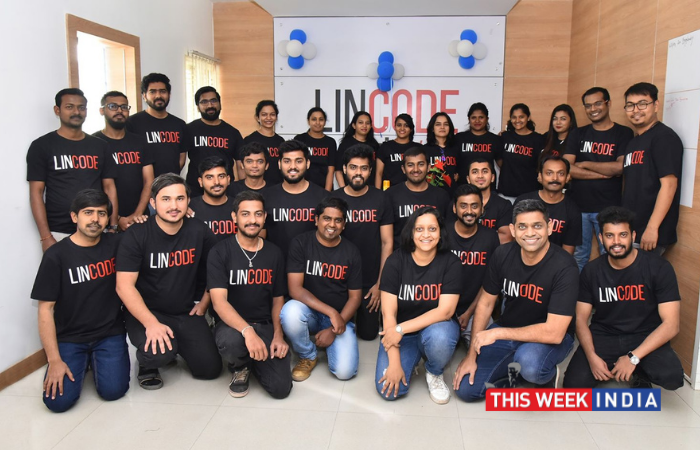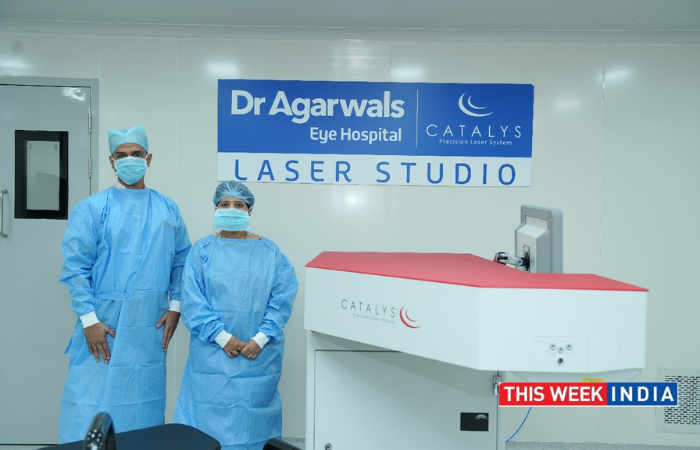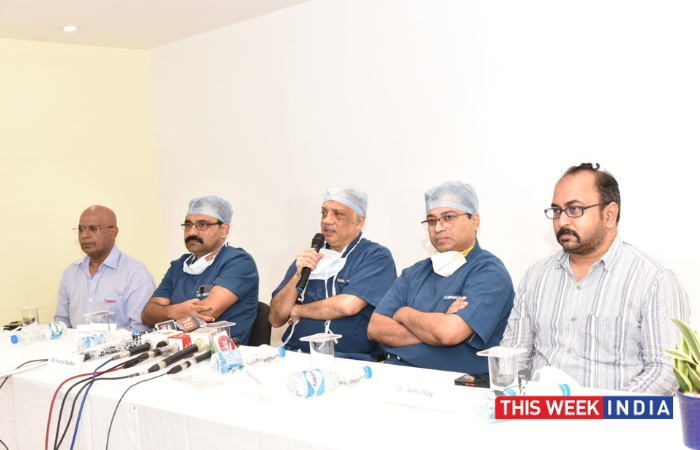Launches state-of-the-art AI/ML-powered solutions for Manufacturing sector
Bengaluru,12 January 2021 Lincode, a leading AI visual inspection company, has closed its another round of funding.
Founded by Rajesh Iyengar, Founder and CEO, and Ritika Nigam, Co-founder and CTO, Lincode enables manufacturers to identify surface defects, identify and measure individual components, and generate real-time data about products on the production line through its flagship industry 4.0 solution, the Lincode Visual Inspection System (LIVIS).
Speaking of the investments, Rajesh Iyengar said: “The automotive industry has shown an impressive adoption of manufacturing technologies. The manufacturers are not hesitant to deploy technology or a solution that they know will bring them high ROI. For instance, our AI-backed visual inspection solution has made the inspection of the production lines much more efficient than the traditional vision systems. The manufacturers have seen a drastic difference with our solution.”
Ritika Nigam added, “The manufacturers see that microscopic surface defects were detected with the highest precision and accuracy within the established cycle times and now we have seen an ever-growing demand amongst the automotive manufacturers. I certainly believe the industry is now more than ready to invest in manufacturing technologies. The future of smart automotive manufacturing is very promising.”
Shekhar Kirani from Accel showed his optimism in the offerings of Lincode, saying, “We are excited about how Lincode is taking industry 4.0 to the next level, leveraging AI/ML to revolutionize precision manufacturing. Quality inspection is a critical challenge faced by manufacturers across the industries and Lincode has an amazing IP/Tech to address in multiple categories and markets. They are seeing great early success with their products across the globe.”
Seconding him is K C Chea of Tech Coast Angels, San Diego: “The Lincode computer vision technology is very promising for the automotive industry and manufacturing in general. The solution will deliver higher quality products at a lower cost. We invested in Lincode because we believe Lincode is the future as customers demand zero defects. ”
Hus TIgli of Tech Coast Angels added, “Lincode has demonstrated that its technology has achieved impressive results in defect detection vs. traditional machine vision technologies. We believe that these phenomenal AI-enabled results and the quick set-up times achieved are real differentiators for Lincode.”
“We believe in backing entrepreneurs who are looking to transform industries and even creating new ones leveraging technologies like AI. We see a lot of synergy between our vision and what Lincode is trying to achieve.” says Robbie Dutta of Nurture Ventures.
Raj Snehil Juneja, Managing Partner of Disruptors Capital said, “We are glad to partner with Lincode as seed investors. Lincode is uniquely spearheading industrial transformation globally. Their strong competitive edge (reflected in extremely low false calls, high compatibility and IP) along with Rajesh and Ritika’s execution capabilities, makes us believe they are disruptors poised for large scale success.”
Yashwanth Hemraj, Founding Partner of Arka Venture Labs concluded saying, “Our investment in Lincode aligns with our vision of backing game-changing cross-border vertical solutions that are built with three main components – AI, workflow automation and datasets. Lincode stands out among competitors, in its ability to execute and grow rapidly. We are very excited to back Rajesh and Ritika as Lincode embarks on becoming the go-to Visual Inspection solution in the factory floors for the largest OEMs and their supplier ecosystem.”
The automotive industry is witnessing a bullish trend and has been adopting smart manufacturing to a great extent. The industry is making large investments in smart technologies such as AI, IIoT, Automation, Big data, 5G, etc. to streamline and scale up the automotive manufacturing process for higher efficiency and production capacity.
By the end of 2022, automotive manufacturers expect that some 24% of their plants will be smart factories,and 49% of automakers have already invested more than $250 million in smart factories. However, only a few automotive manufacturers have translated this enthusiasm into real progress – some 42% of smart factory initiatives are struggling and the digital maturity of their manufacturing operations is below par.
The automotive sector has seen growth in its sales and increased adoption of critical manufacturing technologies, which is an important driving factor. This has led to the delivering of best-in-class quality of products that are available to the market in keeping with the demand due to better production capacity.









